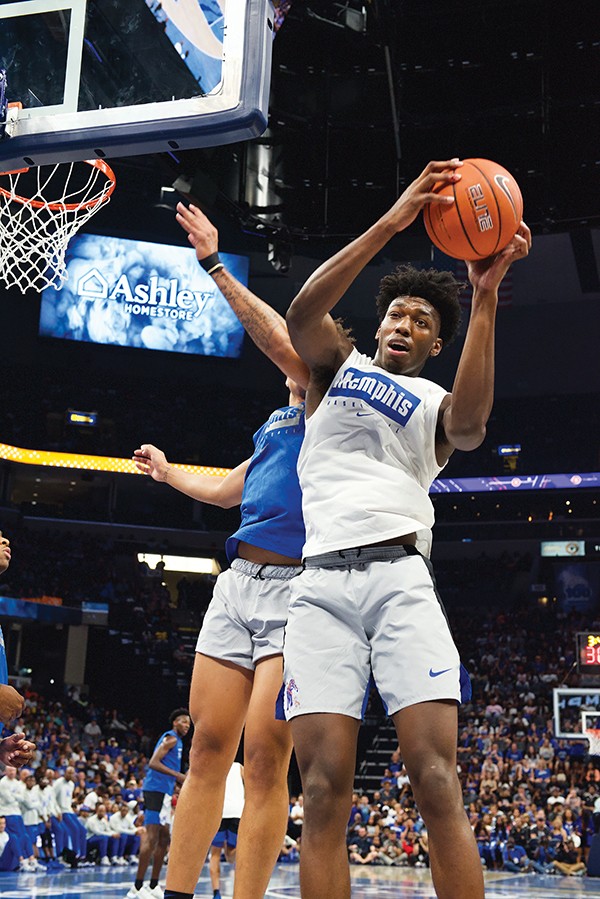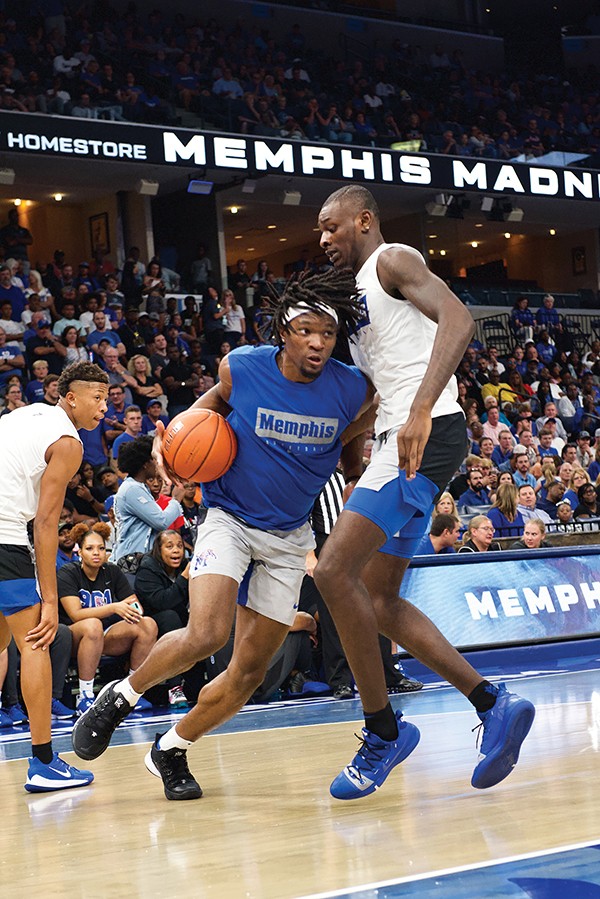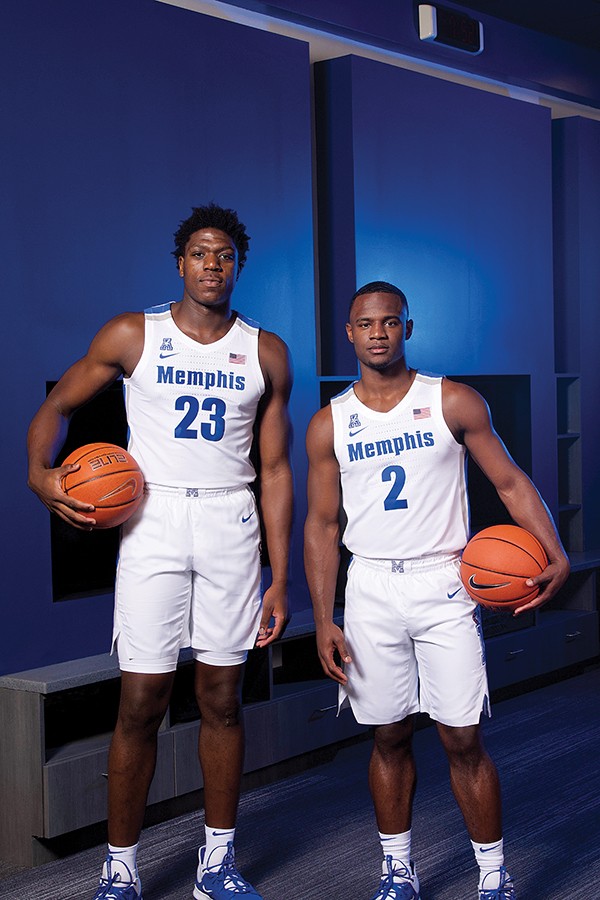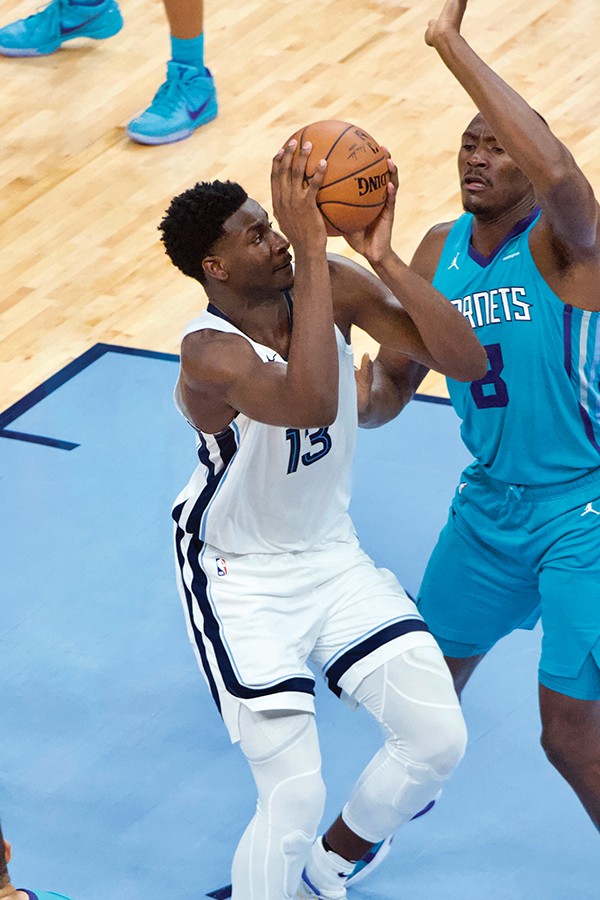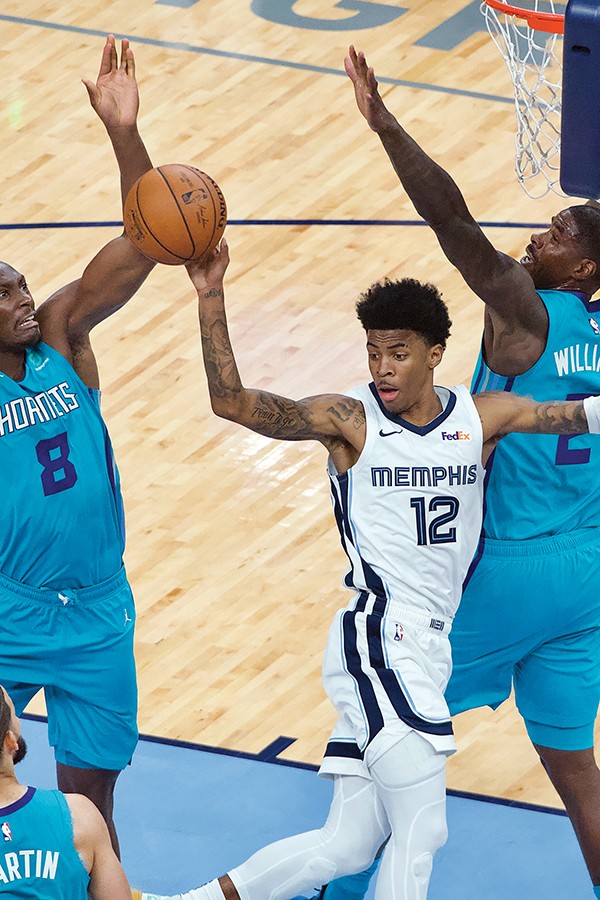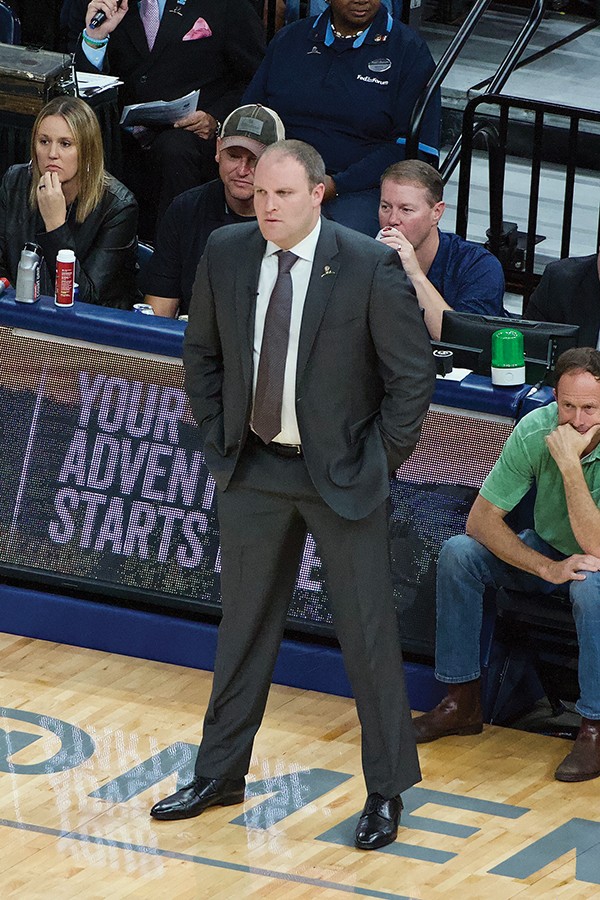Let’s start with the positive. The 2019-20 Memphis Tigers will post a winning record, making it 20 consecutive such seasons, an unprecedented stretch for a program that has existed now for more than a century. The Tigers have beaten three teams from “Power Five” conferences (they beat none in Penny Hardaway’s first season as head coach), including regional villains Ole Miss and Tennessee (the latter in Knoxville). The Tigers have suited up arguably the finest freshman in the country, Precious Achiuwa having averaged 15.8 points and 10.8 rebounds on his way to all-league recognition in the American Athletic Conference.
Alas, having finished fifth in the American Athletic Conference (with a record of 21-10, the Tigers may need to reach the final of this week’s AAC tourney in Forth Worth to land a berth in the NCAA tournament. The Tigers hope to avoid a six-year Big Dance drought, one that would equal the longest (1997-2002) since the famed 1973 team played UCLA for the national championship.
 Larry Kuzniewski
Larry Kuzniewski
Penny Hardaway
While they’ve beaten the Rebels and Vols, these Tigers also have a 40-point loss to Tulsa on their record, along with a dispiriting home loss to USF in early February that seriously damaged any hopes of a run to the Big Dance.
And finally, while they may feature the finest freshman in the country, his name is not James Wiseman. The Wiseman Case, as it will forever be known, is now in the hands of something called the Independent Accountability Resolution Process (IARP), a new agency tasked by the NCAA to measure and resolve infractions. Based on the Memphis program’s track record — two of three Final Four appearances vacated — the fan base should prepare itself for a hammer it didn’t know existed six months ago. All the more threatening, there is no appeal process with the IARP.
“We’ve been through everything you can go through. We’re fighting. These guys are scrapping. I’m proud of the effort.”
— Penny Hardaway after the Tigers beat UConn on February 1st
We asumed last summer the story of these Tigers would be told with Wiseman front and center. We didn’t know the story would actually be told with Wiseman as merely background, offstage. The acclaimed recruit — the centerpiece among seven jewels in Hardaway’s second class — made the kind of debut in November that had the most stoic of Tiger observers swooning: 28 points and 11 rebounds in just 22 minutes of playing time. It proved to be a cruel tease.
Wiseman played in two more games, even after learning he’d been ruled “likely ineligible” by the NCAA for his family having received $11,500 for moving expenses from Hardaway in 2017. It didn’t matter that Hardaway was merely a high school coach at the time. (He coached Wiseman and East High to a state title in 2018.) After some back-and-forth, the team accepted a 12-game suspension for Wiseman, only to have the player withdraw from the program to begin training for his pro career. (Wiseman is expected to be a top-three pick in June’s NBA draft.) This was removing Jagger from the Stones. It was killing off Rachel after the first season of Friends. Hardaway found himself tasked with driving a muscle car . . . minus the steering wheel.
Then in late January, as the Tigers were practicing before a clash with Connecticut, D.J. Jeffries suffered ligament damage in his left knee. The Tigers were 15-5 at the time, thanks in large part to the impact Jeffries had made since joining the starting lineup in late November: 10.8 points per game, 4.3 rebounds, and 51 percent shooting from the field. If Achiuwa was the second-best player in Hardaway’s ballyhooed recruiting class, it became clear the pride of Olive Branch High School was third. Now Jeffries would be as absent as Wiseman for the remainder of the season.
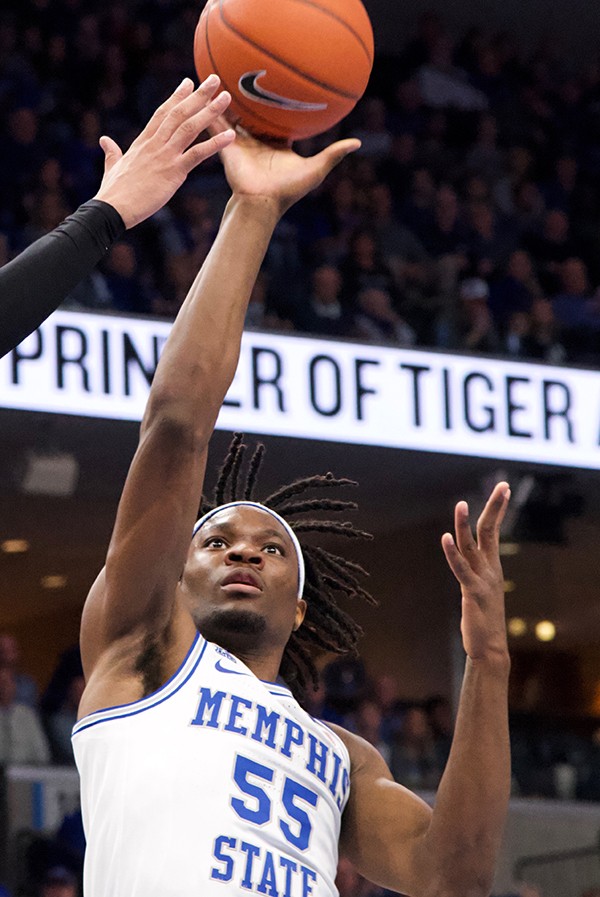 Larry Kuzniewski
Larry Kuzniewski
Precious Achiuwa
“They’re learning on the fly. The pressure is different on this level than it’s ever been in high school.”
— Penny Hardaway after the Tigers beat Temple on February 5th
The Tigers have clearly lacked veteran leadership on the floor. You don’t get doubled up (80-40!) at Tulsa with the right captain in charge. You don’t surrender the final 15 points in a four-point loss to SMU at home without the right floor general shifting the game’s direction.
Why the leadership void? Five senior starters departed after the 2018-19 season. Four of them were junior-college transfers recruited by Tubby Smith to play but two seasons in blue and gray. Smith brought that quartet to Memphis, of course, thinking he’d be the guy tasked with replacing them. When Smith was fired — and Hardaway hired — at the end of the 2017-18 campaign, a “class gap” was all but certain, and the hurt has been compounded by Wiseman’s absence.
There’s been no superstar center — no “unicorn” — to hide or erase shortcomings among a talented-but-green rotation of players whose roles have changed not just from one game to another, but within games. When Achiuwa and Lance Thomas went down late in that home loss to USF on February 8th, the Tigers finished a tight game with no semblance of a frontcourt. The Bulls grabbed 41 rebounds, 12 more than the Tigers in a game decided by two points.
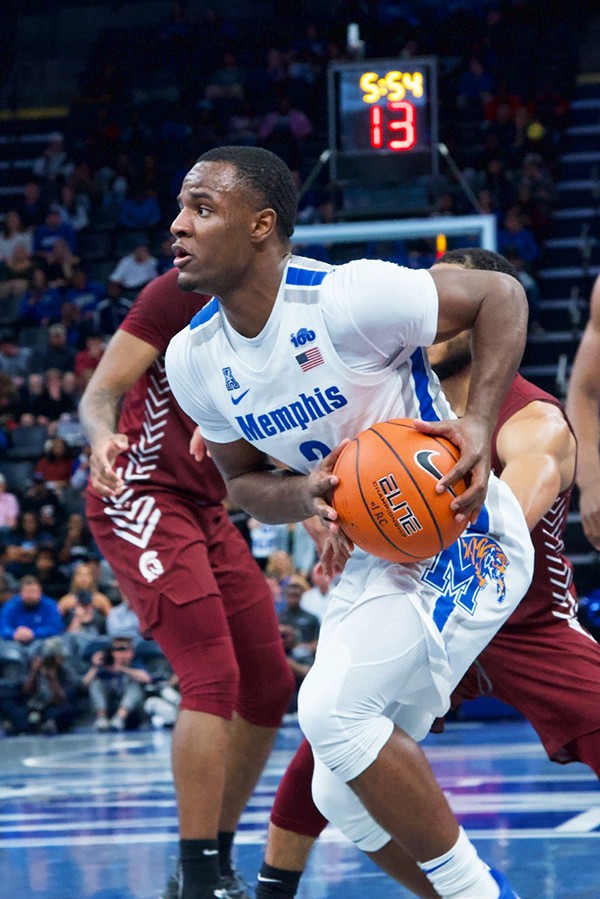 Larry Kuzniewski
Larry Kuzniewski
Alex Lomax
Lomax has emerged as arguably the best point guard in what amounts to a committee system utilized by Hardaway. He’s near the top of the American Athletic Conference with an average of 4.3 assists per game. But veteran judgment? The 6’0″ sophomore chose to drive the lane as the clock wound down in a tie game at Cincinnati on February 13th. Instead of dishing to Achiuwa or another forward, Lomax put up a shot that was blocked from behind. The Tigers lost in overtime.
“This is life,” acknowledges Lomax, who has played for Hardaway since middle school. “People hold you to certain standards and expect you to be somewhere. You’re gonna have your ups and downs, no matter what. Stick to the same routine, trust the same people, and don’t let outsiders spread you with negativity. In the end, you’ll be fine.”
Having grown up in Memphis, Lomax knows the intensity of Tiger basketball culture as well as anyone his age. He also knows his coach personifies that culture, dating back to Hardaway’s All-America playing days (1991-93).
In some respects, Lomax has witnessed Hardaway’s development as much as vice versa. “He’s done a great job,” says Lomax. “All the punches thrown his way, he’s found a way to swing back. You lose a starter every three or four weeks, you have to adjust. You can’t play the same way. Players have to step up before you intended them to. You have to grow up faster. He’s trusted us to do our job. And he always reminds us that this is the city’s team. We have to do it for the city. Especially all the fans and boosters. He goes all out, 24/7. It’s been fun for me to be by his side, and see him develop from when I was so young.”
“Where we started, we had a very deep team. We had size, we had shooting, we had speed, we had length. Where we are now . . . we’re just scrapping.” — Penny Hardaway after the Tigers lost to USF on January 12th
Few would describe Achiuwa’s play as “scrapping.” Amid the team’s various stumbles and face-plants, the freshman from Queens has left an imprint unlike many rookies in Tiger history. His 18 double-doubles are a Memphis freshman record and one more than the great Keith Lee had in 1981-82. Achiuwa is only the fourth Memphis freshman to pull down 300 rebounds and he’s 11 points from becoming just the tenth to score 500. He’s a “specimen,” to borrow a description from Wichita State coach Gregg Marshall, the kind college basketball gets to enjoy but for a single season these days.
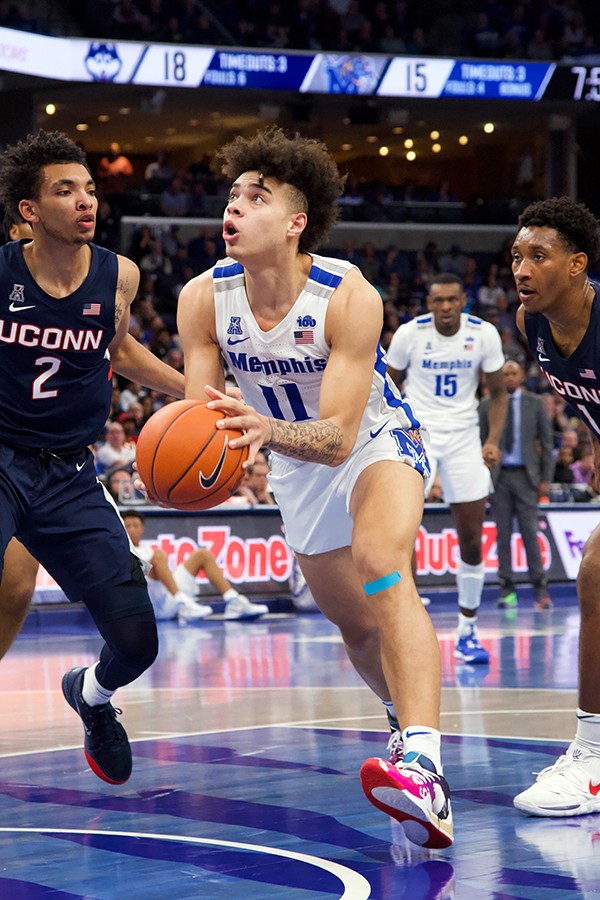 Larry Kuzniewski
Larry Kuzniewski
Lester Quinones
Though not as consistent as Achiuwa, Lester Quinones (a fellow freshman and New Yorker) has made his own impression on the Tiger program, and beyond his uncomfortably high — for some — shorts and air-guitar celebrations after connecting on a three-pointer. His flamboyance doesn’t mean Quinones hasn’t felt the growing pains. (At times, literally. He missed five games after breaking his right hand in the Ole Miss game.)
“We’ve lost way more games than we expected to,” says Quinones. “[It’s been crucial] for us to stay together and not let outside distractions interfere with where we’re trying to get . . . the NCAA tournament. We’re buying in more — and coming closer together — as the year goes on. No separation, because it’s been tough. Being the youngest team in the country, I feel like we’ve dealt with it pretty well. It’s hard to find a leader with just one senior on the team. We’re going to live up to expectations. We’ll get it done.”
So, what awaits the Tigers for the 2020-21 season? It’s hard to imagine the honeymoon being over for a third-year coach. This city’s love affair with Penny Hardaway runs deeper than most relationships between a community and college coach. It’s a different kind of belief system: This is Memphis, and he’s Penny. But as Hardaway has begun to emphasize, growth is necessary. Graduate transfers — veteran leadership, even if new to town — has become part of the sport’s culture. Look for a transfer or two to provide next year’s team an actual senior class. Among the five current freshmen who may be back — Achiuwa will be a first-round pick in the NBA draft — how many will return? These are variables to consider after the current Tigers play their final game. For now, hope remains, even if but a sliver.
“The low points have been losing our brothers out there,” says Lomax in reflecting on Wiseman and Jeffries. “It’s a family thing with us. But you gotta keep going, bring it together. At the end of the day, you can’t focus on the low points. Make a quick decision, keep your head up.”
And like Quinones, Lomax relishes the expectations of a passionate, if embattled, fan base. Whether it’s internal bravado or the “smoke” of national attention, he wouldn’t have it any other way. “This program can be the highest level,” he emphasizes. “We want to be number-one in the country. It’s not just basketball. We want to be number-one in everything. Fans don’t want mediocrity. We don’t either.”
Could the 2020-21 Tigers — however that roster is shaped, whatever the IARP decides — be a better team for the trials of this winter? “We can be better, just for having been through a lot,” notes Lomax. “Guys who have been here can teach the young guys. But every year’s different. And we’re focused on this year, still have a goal to accomplish.”
Even with possible sanctions looming (a postseason ban? a scholarship reduction?), Tiger basketball will be back in the spotlight, sometimes more so when games are not being played. Such is life for a program built as much on the bruises it’s absorbed as the nets it’s cut down.
“With the amount of players returning, we should have way more experience,” adds Quinones. “And [we’ll be] working hard this summer, expecting things might go south, and how we’ll recover. We’ll have that experience next year. Bigger goals. Bigger accomplishments.”
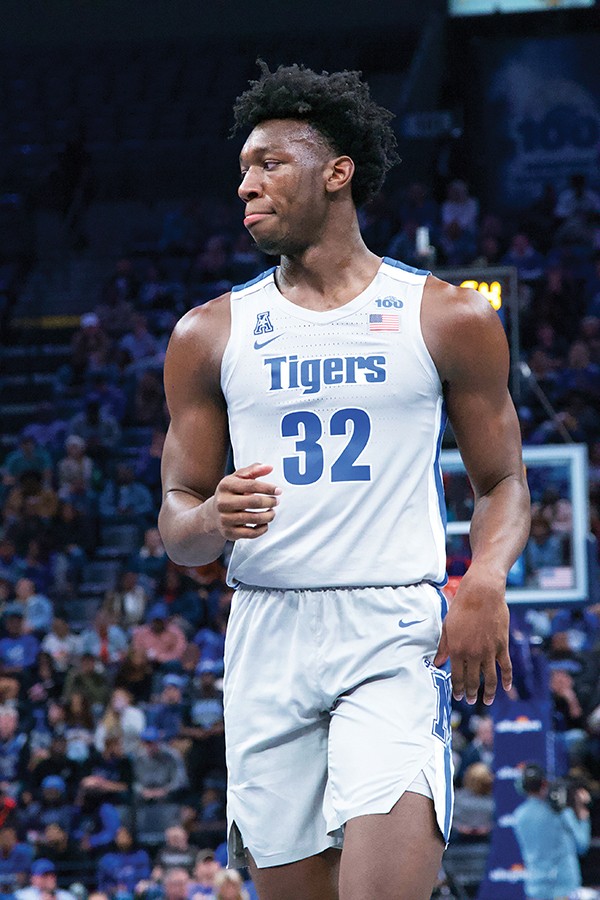 Larry Kuzniewski
Larry Kuzniewski  Larry Kuzniewski
Larry Kuzniewski  Larry Kuzniewski
Larry Kuzniewski  Larry Kuzniewski
Larry Kuzniewski 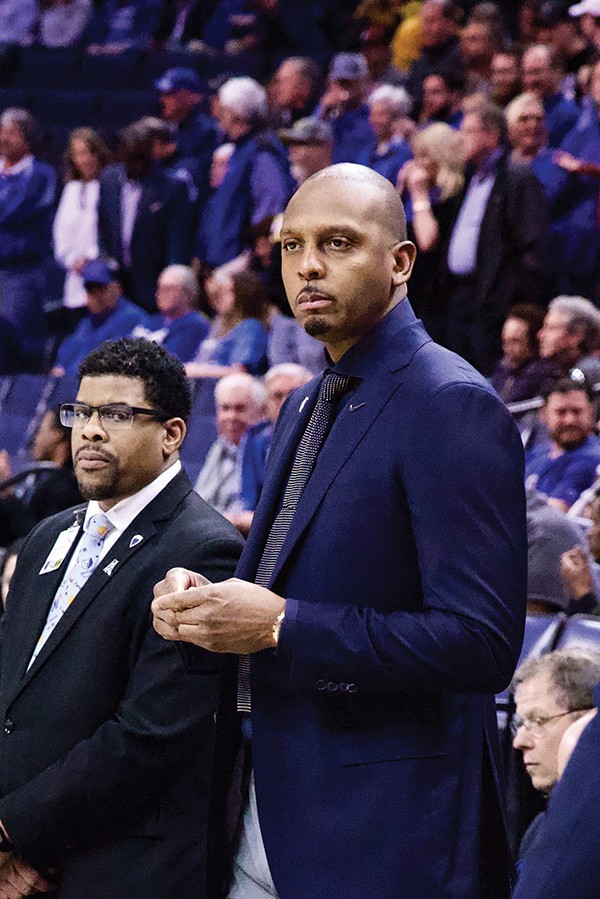 Photographs by Larry Kuzniewski
Photographs by Larry Kuzniewski 